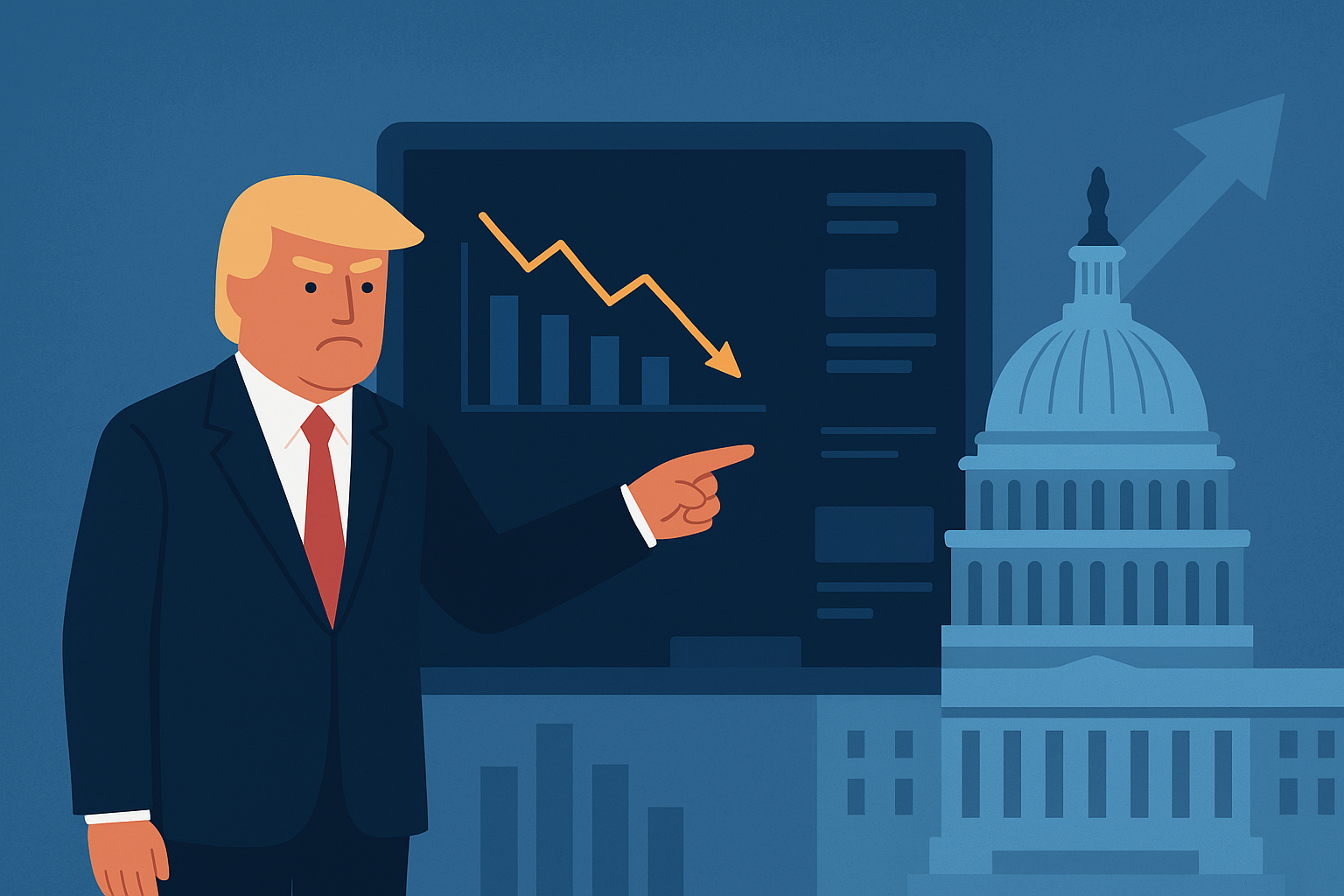In an era where markets trade on every decimal of economic data, political interference in the integrity of those numbers could prove more disruptive than any policy change or earnings miss. Investors woke up this week to a troubling development: the U.S. administration’s abrupt removal of the Bureau of Labor Statistics (BLS) chief and the promotion of politically charged narratives around jobs data. For Wall Street, this raises uncomfortable questions about whether official statistics—long considered a neutral compass—can still be trusted.
Markets, already on edge over interest rate speculation, reacted with caution. Treasuries saw choppy trading, the dollar wavered, and analysts warned that distorted or delayed economic reporting could fuel volatility across asset classes. As Reuters reported, Trump’s so-called “data war” risks creating a false sense of economic calm—or panic—depending on the spin of the moment.
Why This Matters for Investors
Reliable data is the bedrock of financial markets. From GDP growth rates to nonfarm payroll figures, traders, economists, and central banks rely on timely, accurate statistics to price risk. Any doubt about the credibility of these reports can lead to mispricing, reduced liquidity, and a surge in volatility.
A historical parallel is the Argentine inflation data crisis in the late 2000s, when official figures diverged sharply from private estimates, eroding investor confidence and driving up borrowing costs. If the U.S.—issuer of the world’s reserve currency—enters similar territory, the consequences could ripple globally.
According to Bloomberg Economics, even a small credibility discount in U.S. data could widen Treasury yields by 15–20 basis points as investors demand a premium for uncertainty. Equity risk premiums could also rise if earnings forecasts, often modeled on macro inputs, lose accuracy.
Erosion of a Market Anchor
The Bureau of Labor Statistics, alongside the Census Bureau and the Bureau of Economic Analysis, provides the statistical foundation for everything from Fed policy to corporate investment decisions. The removal of the BLS chief, reportedly over disagreements about seasonal adjustment methods in the jobs report, is viewed by many economists as a red flag.
“Markets can handle bad news. What they can’t handle is not knowing whether the news is real,” said Diane Swonk, chief economist at KPMG, in a note to clients.
Without trusted benchmarks, traders may increasingly turn to private-sector data providers like ADP, Indeed Hiring Lab, or alternative data firms that track payroll deposits, freight activity, or consumer spending in real time. This shift could give well-resourced institutional players an information edge—at the expense of broader market efficiency.
Future Trends to Watch
- Rise of Private Data Providers: Expect increased reliance on subscription-based data from companies like FactSet, Bloomberg, and Refinitiv to cross-check official releases.
- Market Reaction Volatility: Discrepancies between official and independent data could trigger sharp intraday swings.
- Regulatory Scrutiny: If Congress or courts challenge political control over statistical agencies, markets could face months of uncertainty.
- Global Perception Risks: International investors may begin factoring political risk into U.S. debt and equity markets, a dynamic usually reserved for emerging economies.
Key Investment Insight
Investors should prepare for a data credibility gap. That means:
- Diversifying Information Sources: Cross-reference government data with private-sector and alternative datasets.
- Adjusting Risk Models: Factor in wider uncertainty ranges for economic projections, especially around employment, inflation, and GDP.
- Positioning for Volatility: Consider hedging strategies via VIX options, currency plays, or defensive sector rotation to weather unexpected data shocks.
While U.S. markets remain deep and liquid, their efficiency hinges on trust in the numbers underpinning them. If that trust erodes, price discovery becomes harder—and more expensive—for everyone.
Stay informed with MoneyNews.Today for accurate, timely, and actionable insights that help you navigate an investment landscape where the truth itself is becoming a market variable.





